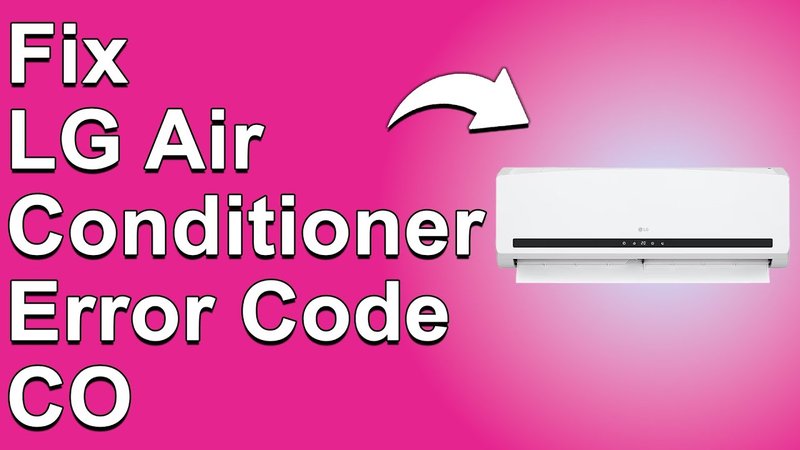
The OE error code on LG air conditioners typically indicates a problem with the drain line. It’s akin to having a clogged sink that stops water from flowing properly. Just like that sink, your AC relies on a clear path for condensed water to exit. When this drain line clogs, the system struggles to remove moisture, leading to potential complications. If left unresolved, this little glitch can grow into a full-blown issue, making your AC work harder, and ultimately causing it to break down.
Understanding the OE Error Code
The OE error code is your AC’s way of waving a flag to get your attention. It specifically points to a drainage issue. Picture this: your air conditioner is like a sponge, absorbing moisture from the air. This moisture needs a way out, and that’s through the drain line. But if things get stuck—like leaves, dust, or even mold—this drain gets blocked.
When your air conditioner can’t drain water efficiently, it’s like trying to run a marathon while wearing a backpack filled with bricks. This extra strain doesn’t just reduce performance; it can also lead to increased energy consumption. You might notice your electricity bill creeping up, and nobody wants that. Regularly keeping an eye on these error codes can save you from surprise expenses.
To prevent this, think of your AC like you would your car. Regular maintenance checks can keep things running smoothly. Cleaning the filters, ensuring the drainage path is clear, and scheduling occasional professional check-ups can save you a lot of headaches (and money) down the line.
Possible Consequences of Ignoring the Error
So, what happens if you decide to shrug off the OE error? Well, firstly, you’ll likely see a steady decrease in your AC’s cooling efficiency. It’s like trying to go up a down escalator—your AC works harder but doesn’t have much to show for it. This reduced efficiency means your home isn’t as cool as it should be, even though the power meter keeps spinning.
Another, more alarming consequence is the potential for water damage. Because the moisture is not draining properly, it might start pooling in places it shouldn’t, possibly leading to leaks. Imagine finding water damage on your walls or ceiling, which could lead to expensive repairs and an even bigger headache if mold decides to join the party.
Moreover, continually ignoring this problem can drastically shorten the lifespan of your AC. A system that constantly battles extra stress and strain is one step closer to complete failure. At that point, you’re looking at possible costly repairs or even the need for a replacement—a financial burden no homeowner wants.
Steps to Address the Error
Addressing the OE error isn’t as daunting as it might seem. Start by turning off the air conditioner and unplugging it. Safety first! Then, locate the drain line. In many models, this is a small PVC pipe near the base. You can try gently checking for any visible blockages. Sometimes, using a wet/dry vacuum can help clear minor clogs.
If you’re not comfortable troubleshooting on your own, or if the problem persists, calling in a professional is a good idea. They have the tools and expertise to get to the root of the problem. Plus, they can offer tips on keeping your AC running smoothly moving forward.
Routine maintenance, like replacing filters and scheduling annual inspections, can keep future errors at bay. If you want your AC to run like new, treat it with care. Much like you would maintain any other significant home appliance, regular attention can prolong its life and save you from expensive fixes.
In conclusion, while seeing an error code flash on your AC might feel like the end of the world, it’s really just an opportunity to give your system a little TLC. By addressing and fixing the OE error promptly, you’re ensuring your air conditioner remains a reliable ally in fighting the summer heat. Don’t wait until it’s too late—get ahead of the issue, and keep your home cool and comfortable.